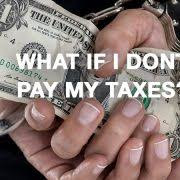The IRS, in a News Release, has provided information about, and copies of, new and updated 2021 draft Forms K-2 and K-3 for domestic passthrough entities that have items of international tax relevance that are reported to partners and/or shareholders.
The early drafts of the Schedules K-2 and K-3 proposed for the 2021 Form 1065 were originally released in July 2020. In September 2020, the American Institute of Certified Public Accountants submitted a letter to the IRS saying the proposed international changes to Schedules K-2 and K-3 may result in significant overreporting of information that isn't relevant in determining U.S. federal income tax.
The redesigned forms and instructions are meant to help partnerships, S corporations and U.S. people who must file Form 8865 for controlled partnerships by explaining how to provide international tax information.
The Forms Only Apply To Those Required To File Forms 1065, 1120-S Or 8865 If The Entity Has Items Of International Tax Relevance Such As Foreign Activities Or Foreign Partners.
The IRS has now released updated drafts of Forms K-2 and K-3 for partnerships has well as new drafts of these schedules to be used by S corporations (Schedule K-2, Shareholders’ Pro Rata Share Items – International; and K-3, Shareholder’s Share of Income, Deductions, Credits, etc. – International), and foreign partnerships (Schedule K-2 (Form 8865), Partners’ Distributive Share Items – International; and Schedule K-3 (Form 8865), Partner’s Share of Income, Deductions, Credits, etc. - International).
According to the IRS, these new and updated forms are designed to make it easier for partners and shareholders of passthrough entities with items of international tax relevance to compute their U.S. income tax liability with respect to those items, including claiming deductions and credits. The IRS also said that domestic passthroughs with no items of international tax relevance won't need to use these forms. .
According to the IRS, these new and updated forms are designed to make it easier for partners and shareholders of passthrough entities with items of international tax relevance to compute their U.S. income tax liability with respect to those items, including claiming deductions and credits. The IRS also said that domestic passthroughs with no items of international tax relevance won't need to use these forms.
Both Schedule K-2 (Form 1065) and Schedule K-2 (Form 8865) request the following information:
- Part A. Is the partnership a withholding foreign partnership?
- Part B. Is the partnership (including the home office or any branch) a qualified derivatives dealer?
- Part 1. Partnership's other current year international information; including, among other items, gains on personal property sales and partner loan transactions.
- Part 2. Foreign credit limitation; including gross income and deductions.
- Part 3. Other information for preparation of Form 1116, Foreign Tax Credit (Individual, Estate, or Trust) or Form 1118, Foreign Tax Credit - Corporations.
- Part 4. Information on partners’ Section 250 deduction with respect to foreign-derived intangible income (FDII).
- Part 5. Distributions from foreign corporations to partnership.
- Part 6. Information on partners’ Section 951(a)(1) and Section 951A inclusions.
- Part 7. Information to complete Form 8621, Information Return by a Shareholder of a Passive Foreign Investment Company or Qualified Electing Fund.
- Part 8. The Schedule K-2 (Form 1065) requests information about a partnership’s interest in foreign corporation income (Code Sec. 960). The Schedule K-2 (Form 8865) asks for partners' information for base erosion and anti-abuse tax (Code Sec. 59A) purposes.
The Schedule K-2 (Form 8865) ends with Part 8. However, the Schedule K-2 (Form 1065) continues to request information on:
- Part 9. Partners’ information for base erosion and anti-abuse tax (Code Sec. 59A); and
- Part 10. Foreign partners' character and source of income and deductions.
The Schedule K-2 (Form 1120-S) requests much the same information as the other two Schedules K-2.
The Schedule K-3 for Form 1065, Form 8865, and Form 1120-S follows the structure of their respective Schedule K-2 and is provided by a passthrough entity to each partner or shareholder.
There are no instructions for Schedules K-2 and K-3 (Form 1120-S) or Schedules K-2 and K-3 (Form 8865). The IRS plans to release draft instructions for these schedules in the summer of 2021.
Have an International Tax Problem?
Contact the Tax Lawyers at
Marini& Associates, P.A.
for a FREE Tax HELP Contact Us at:
Sources:
Read more at: Tax Times blog










